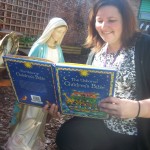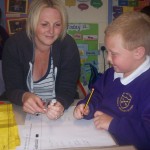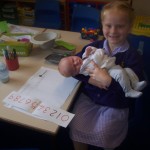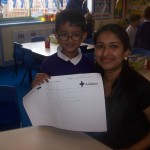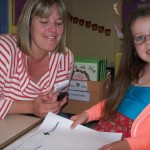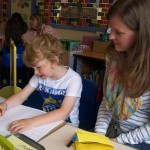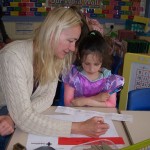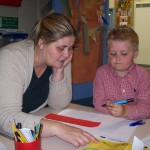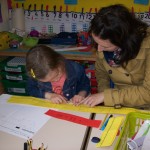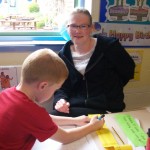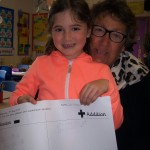Bring in a shoe box….
After half term we will be making a ‘setting in a shoe box’ for our versions of the story ‘Where the Wild Things Are’.
Please can all year one children bring in a shoe box.
It doesn’t need to have a lid and it can be any size!
You are welcome to donate more than one.
Please name them and bring them in during the first week back after half term.
Thank you!
Home Learning over Half Term…
As part of our Summer Extreme Reading challenge we would like you to get ‘out and about’ reading over half term. If you are going to the beach for the day or down to the park for a picnic, why not take a book with you to read in the fresh air? Try to read something once a day- comics, magazines, food menus, leaflets all count too!
We also have until the 6th June to make the most of our Bug Club online reading books trial. If the trial is successful, and we have good feedback from children, parents and teachers, then we will be investing in this for September.
Please use this as much as you can over half term!
Letters and Sounds
As you will hopefully be aware the Phonics Screening Check is scheduled to take place in the week beginning 16th June. Please read as often as possible with your child, encouraging them to use all the sounds they know to sound out words and blend them together to read them. Encourage your children to play games such as ‘Buried Treasure’, ‘Picnic on Pluto’ and ‘Dragon’s Den’ on Phonics Play.
http://www.phonicsplay.co.uk/PicnicOnPluto.html
http://www.phonicsplay.co.uk/DragonsDen.html
http://www.phonicsplay.co.uk/BuriedTreasure2.html
Thank you for your support.
EXTREME READING!!!
Just a reminder that all children are invited to take a ‘selfie’ or have a picture taken of them reading in an ‘extreme’ situation.
Some examples are: hanging upside down, riding a horse, riding a bike, sailing, reading on a beach etc.
The idea is that it promotes reading for pleasure and the fact that reading can be done anywhere!
Here is a picture of Ms Ramsay reading in the Mary garden:
Please hand your extreme reading photos directly to Mrs D in the library.
Thank you!
Year One Summer Liturgy
We had our Year One Summer Liturgy this week on Tuesday.
Thank you to all the parents, grandparents and families for joining us.
Here is the prayer we said during the Liturgy:
Dear Lord,
Thank you for our special mummies and all that they do for us.
Thank you for taking care of us and being there for us.
Amen
Are you a maths champion?
Follow this link to play some excellent, age-appropriate maths games.
http://www.mathschamps.co.uk/games5-7
Try out the ‘Bop a Bot 1′ game to practise your subtraction skills!
Bug Club

Phonics Screening Check Week Beginning: 16th June 2014

The phonics screening check is a quick and easy check of your child’s phonics knowledge. It helps your school confirm whether your child has made the expected progress.
This year the check will take place during the week commencing Monday 16th June.
How does the check work?
Your child will sit with a teacher he or she knows and be asked to read 40 words aloud.
Your child may have read some of the words before, while others will be completely new.
The check normally takes just a few minutes to complete and there is no time limit. If your child is struggling, the teacher will stop the check. The check is carefully designed not to be stressful for your child.
What are ‘non-words’?
The check will contain a mix of real words and ‘non-words’ (or ‘nonsense words’). Your child will be told before the check that there will be non-words that he or she will not have seen before. Many children will be familiar with this because many schools already use ‘non-words’ when they teach phonics.
Non-words are important to include because words such as ‘vap’ or ‘jound’ are new to all children. Children cannot read the non-words by using their memory or vocabulary; they have to use their decoding skills. This is a fair way to assess their ability to decode.
What can I do to help my child?
We will be inviting all year one parents to attend a short talk in the hall on Tuesday 20th May at 10.15am, just before the year one liturgy. We will be able to advise you on different activities to support and prepare your child for the check. We will also have more information to share with you about the phonics screening check, along with some hand-outs you may find useful.
For more information about the phonics screening check, follow the link below:
https://www.gov.uk/government/collections/phonics
To view the training video on the phonics screening check, follow the link below:
Phonics Screening Check Training Video
To access free games which will support you child in practising reading real and ‘non-words’, follow the link below:
Helping your child with phonics
Phonics works best when children are given plenty of encouragement and learn to enjoy reading and books. Parents play a very important part in helping with this.
Some simple steps to help your child learn to read through phonics:
Ask your child’s class teacher about the school’s approach to phonics and how you can reinforce this at home. For example, the teacher will be able to tell you which sounds and words the class is covering in lessons each week.
You can then highlight these sounds when you read with your child. Teaching how sounds match with letters is likely to start with individual letters such as ‘s’, ‘a’ and ‘t’ and then will move on to two-letter sounds such as ‘ee’, ‘ch’ and ‘ck’.
With all books, encourage your child to ‘sound out’ unfamiliar words and then blend the sounds together from left to right rather than looking at the pictures to guess. Once your child has read an unfamiliar word you can talk about what it means and help him or her to follow the story.
Your child’s teacher will also be able to suggest books with the right level of phonics for your child. These books are often called ‘decodable readers’ because the story is written with words made up of the letters your child has learnt. Your child will be able to work out new words from their letters and sounds, rather than just guessing.
Try to make time to read with your child every day. Grandparents and older brothers or sisters can help, too. Encourage your child to blend the sounds all the way through a word.
Word games like ‘I-spy’ can also be an enjoyable way of teaching children about sounds and letters. You can also encourage your child to read words from your shopping list or road signs to practise phonics.
Most schools use ‘book bags’ and a home learning log, which is a great way for teachers and parents to communicate about what children have read. The home learning log can tell you whether your child has enjoyed a particular book and shows problems or successes he or she has had, either at home or at school.
Home Learning 9.4.14
Next week we will be learning about the Buddhist festival ‘Wesak’.
Wesak is the most important of the Buddhist festivals and is celebrated on the full moon in May.
It celebrates the Buddha’s birthday, and, for some Buddhists, also marks his enlightenment and death.
Could you find out about Buddhism and this religious festival?
You might like to make a ‘Wesak’ lantern.
Or you could find out about their chants and prayers.
Here are some useful websites:
http://www.bbc.co.uk/schools/religion/buddhism/buddha_day.shtml
http://www.buddhamind.info/leftside/actives/vesak-lite.htm
Summer Term
We hope you all had a lovely, restful Easter and are now refreshed and ready for the Summer term!
This term our topics will be ‘Wild Thing’ and then ‘Kenya’.
We have kick-started the summer term by transforming our classrooms into ‘Rainforest settings’ and we have already planted sunflower, tomato and been seeds. This has hooked the children straight away into their new learning context.
We have six busy weeks planned of planting and rearing a mixture of flowers, vegetables and fruit. We will be using the wooden planters in the Mary Garden.
RE
We will be focussing on Easter and the story of The Resurrection. We will finish the year learning about Pentecost and Mission and how the disciples went out and proclaimed the good news.
Literacy
In Literacy we will be applying ‘Instruction’ writing skills when planting sunflower seeds. We will also be teaching a unit on ‘Stories with fantasy settings, where children will learn to use powerful description. If you have any excellent examples of stories with exciting settings your child could share with our class, please bring in a named copy or speak to teacher if you would like to come and read a story to the children.
After half term we will be teaching an extended unit on ‘Stories with from other cultures’ looking at patterned language and rhyme. We will finish the year with a piece of extended story writing.
As you may well already know there is a ‘Phonics Screening Check’ taking place in all Year One classes across the country during the week beginning 16th June so reading daily with your child, practising decoding the sounds in words and blending is essential to help them show what they can do.
Numeracy
We have just completed a week on ‘Telling the Time’ which all children experienced some success in. Please continue to encourage your child to use time-related language and practice reading o’clock, half past and quarter past times.
This term in numeracy we will be starting to explore place value in two-digit numbers and partitioning for addition and subtraction. We will be using the fractions half and quarters in the context of numbers and shapes; mentally using number bonds and doubling facts to add and subtract; standard units for measuring including use of rulers and weighing scales.
Science
We found out what the children already knew about plants and have planned the ‘Wild Thing’ topic using the children’s own enquiry questions. After half-term we will be learning about ‘Light and Sound’.
PE
The children are continuing to learn basic throwing, catching and ball-control skills in outdoor multi-skills with Mr Mortimer. After half-term they will be learning other skills in preparation for sports day.
Foundation
Through the ‘Kenya’ topic we will explore African drumming, singing and dancing. We are hoping to try some Kenyan cuisine.
If you are an expert on anything ‘African’ and would like to come and talk to the year group about your experiences or share your knowledge, please get in touch.
ICT
Thank you for the continuing support of our parent helpers.
If you are interested in supporting year one during the summer term, even if you only have an hour to spare to hear readers, please speak to your child’s class teacher.
As the weather improves children may need to bring in named sun-hats and named bottles of sun cream. We suggest children apply a layer of sun-cream at home before school and then they need only re-apply if necessary.




